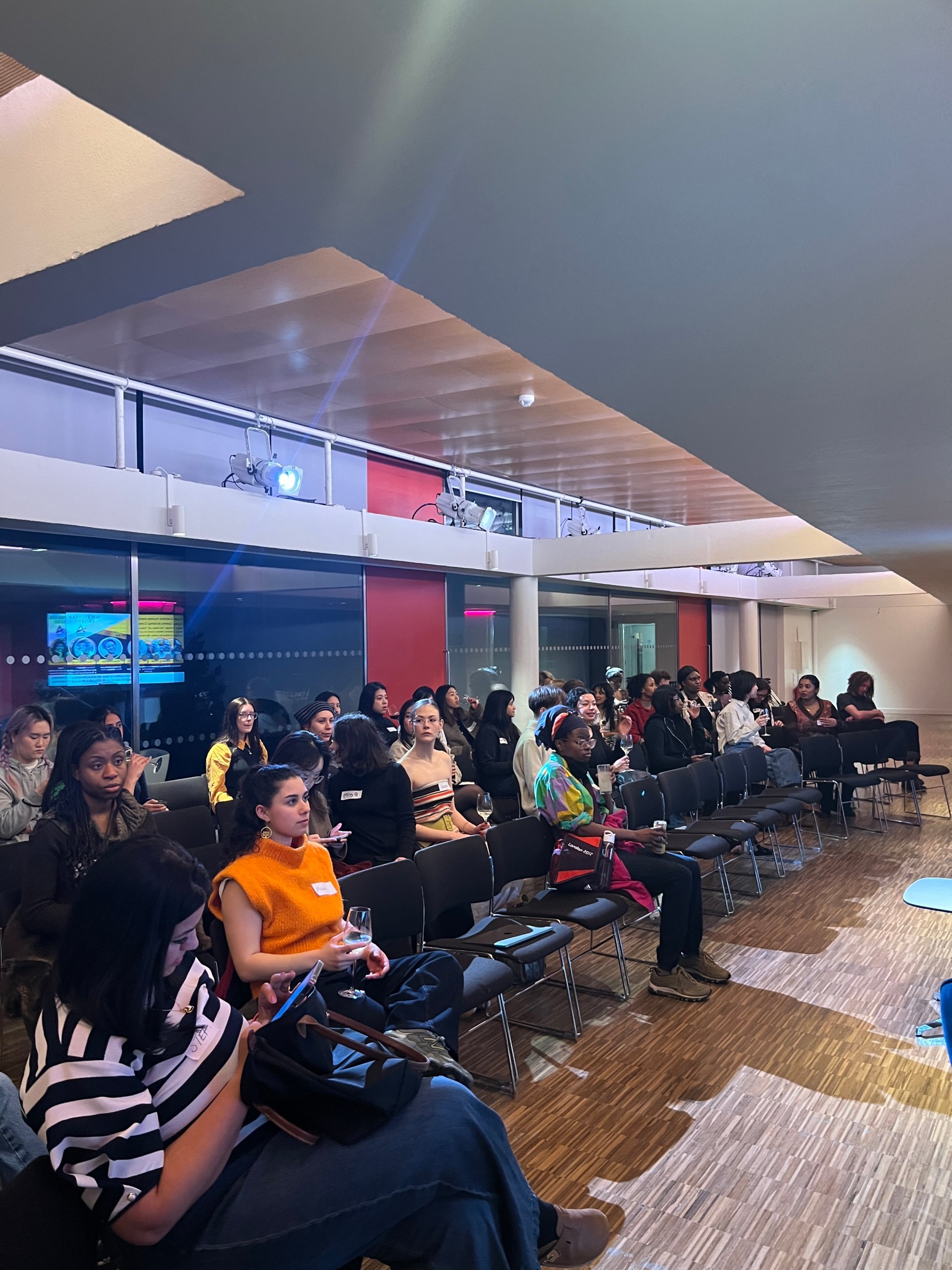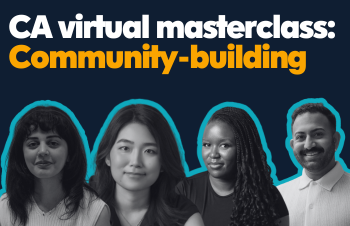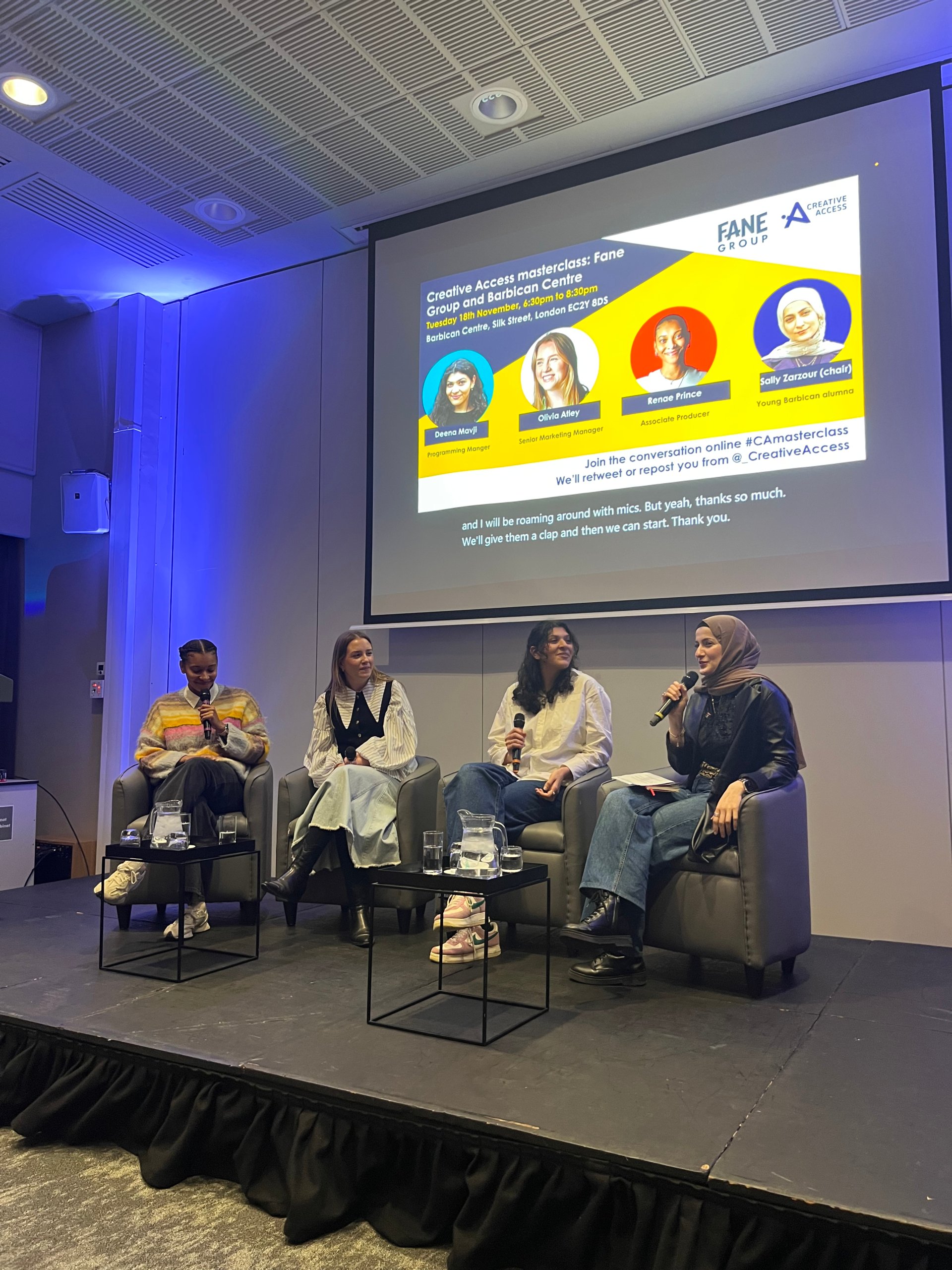In our latest masterclass, we were joined by Aki Schilz, director of The Literary Consultancy – the UK’s longest-standing editorial consultancy. A writer, businesswoman and creative facilitator, alongside her role at TLC, Aki set up the Rebecca Swift Foundation, is the co-founder of Being a Writer, and launched the #BookJobTransparency campaign.
Aki led an interactive session on how to build a career that centres equity. Read on to find out about her career journey and how to create work that makes an impact…
How to find a career you’ll love
Feeling adrift in your career? It’s a sign that something isn’t quite aligning. Aki encouraged our audience to take a holistic approach to career planning, using a self-reflective SWOT analysis. Instead of just looking at career opportunities, she advised participants to ask themselves four key questions:
- What are your superpowers?
- What sparks your curiosity?
- What do you value most?
- What impact do you want to have?
By considering these factors, creatives can carve out careers that feel both purposeful and fulfilling.
Everyone’s journey is different…
Aki shared her personal career trajectory, demonstrating that there’s no single path into the literary world. Coming from a family of teachers and avid library-goers, books were a natural part of her life. She studied languages at university before pursuing a master’s in creative writing.
However, after she graduated, she entered the workforce during a recession and found that her degrees hadn’t equipped her with practical career skills. She worked temp jobs as a secretary and PA in the NHS, transitioning into SEO copywriting and internships before landing a role as an acquisitions assistant at Jessica Kingsley Publishers.
While working, Aki continued to engage with the arts, writing dance reviews through a youth arts charity. She later came across Free Word and proactively reached out to every company based in their building. The only person to reply was Rebecca Swift – who she would later go on to work with at The Literary Consultancy.
Aki encouraged attendees to look for common threads in their past work to help understand what role or career would be a good fit for them. For her, it was creativity, literature, access, culture, change, and, more recently, wellbeing.
She also emphasised that failures are not discussed enough in the creative industries, saying: “Some of my failures haven’t made me stronger – they’ve just been challenging. It’s important to acknowledge this candidly.” Failures can include job rejections, unsuccessful funding applications, bias in the industry, burnout, or projects not going to plan. The key, she said, is learning from these moments while recognising that they are an inevitable part of a creative career.
However, when looking to progress your career, Aki said: “Empower yourself to ask for promotions and bring proof to those meetings!”
How do we create meaningful and lasting change in the creative industries?
Aki highlighted how gatekeepers often present small, incremental changes as major progress: “Gatekeepers like to feed breadcrumbs and tell you that it’s change.”
True change, she argued, requires more than just representation – it demands structural transformation, co-ownership of ideas without exploitation, and continuous evaluation.
She also challenged the literary world to rethink the idea of the ‘default reader’, examine unconscious biases, and practice radical empathy. At the heart of her work is the principle of literary citizenship – a commitment to making the industry more equitable for everyone.
Aki shared her own manifesto for working ethically in the creative industries:
- Transparency
- Accountability
- Curiosity
- True and equitable collaboration
- Creativity and risk-taking
She then asked the audience to consider their own vision for creative citizenship by reflecting on four key questions:
- What makes you feel safe in the workplace?
- What makes you feel valued in the workplace?
- What makes you feel confident in the workplace?
- What lasting change are you committed to making?
Landing your first role
Aki recommended:
- Exploring job boards like Creative Access, Arts Jobs and Arts Professional
- Researching organisations that receive funding from bodies like Arts Council England, Creative Scotland, and Arts Council Northern Ireland to identify potential employers
- Knowing your employment rights, including ensuring you are paid fairly
- Gaining experience wherever possible, such as taking on a role in university societies or volunteering
Building confidence for interviews
“Sometimes we’re asked to be a bit of an avatar of ourselves,” Aki noted. She shared these practical tips for interviews:
- Prepare thoroughly and don’t be afraid to bring notes
- Take a moment before answering questions – it’s okay to ask for clarification
- Remember that nerves are normal and won’t count against you
Returning to the industry after a break
For those nervous about re-entering the creative industries or disclosing a disability after a career break, Aki reassured attendees:
- Legally, there is no obligation to disclose anything
- If you choose to disclose, you are entitled to reasonable adjustments
- Instead of focusing on gaps, reframe your experience: “What are the assets I’m bringing?”
- Identify your fundamental needs, especially if you require flexibility or specific workplace accommodations
Career-switching
Aki encouraged career changers to rethink how they present their CVs:
- Instead of chronological order, highlight three key skills at the top
- Use a personal statement to explain your career transition
- Provide specific examples of the impact you’ve made in previous roles
- Identify light-touch ways to fill any skill gaps – such as online courses or volunteer work
Huge thanks to Aki for sharing her time with us and prompting our audience to better understand their career paths, and of course thank you to our audience for bringing their unique perspectives to the session! Looking for some more career inspiration? Head to our opportunites board to find your next role and join us at our next event.




